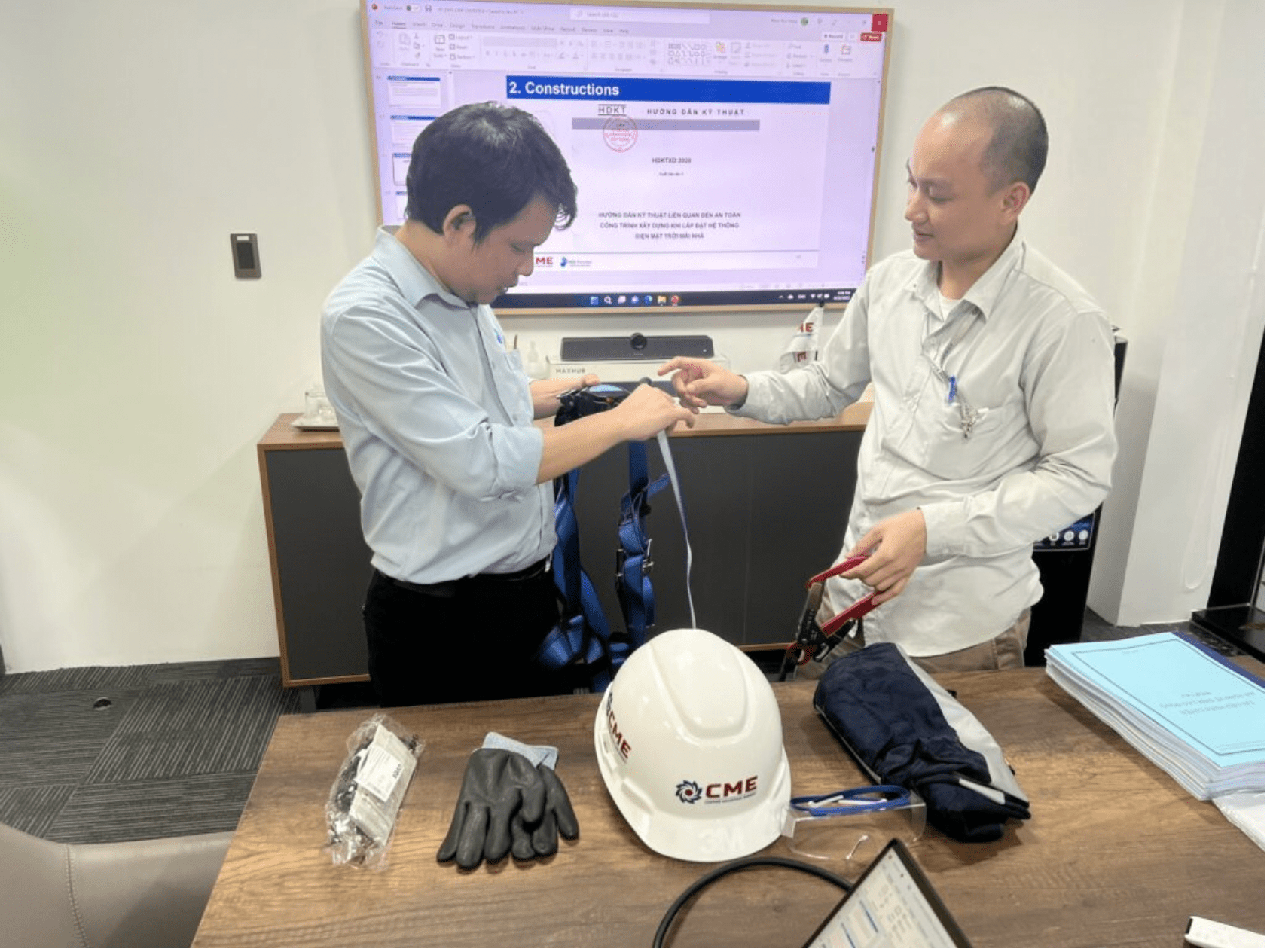
HSE TRAINING AT CME SOLAR
CMES applies Health Safety Environment (HSE) to help employee health, reduce safety incidents, manage their environmental footprint and help to ensure operational continuity. The applications can be broadly divided into several categories: occupational health/industrial hygiene and incident management, product safety and compliance, health and safety applications, environmental monitoring and control and industrial operational risk management.
Why Do Companies Need HSE Training?
Reduces/Eliminates Losing Staff to Workplace Accidents: Companies need HSE training to meet occupational health and safety guidelines designed to protect workers from workplace accidents. Adopting the right HSE training program for your industry proves vital to preventing unnecessary workplace injuries. Lower chances of workplace injuries keep your staff in good health to carry on with their duties.

Keeps Sensitive/General Operations Running at the Workplace: HSE courses and training are crucial to prevent injuries to staff at your workplace, keeping your manpower intact for all operations. Engaging employees with proper HSE training ease the performance of duties when required. Specialized tasks reserved for trained employees will not be left unattended, and other activities at your business will run smoothly too.

To Provide Comprehensive Safety Training for Employees: Health and safety executive training encompasses several safety levels required for smooth, hazard-free operations in the workplace. Professional HSE programs aim to provide and complete health and safety training
Benefits of HSE Training in the Workplace
Health and safety training consists of processes, regulations, and methods designed to protect people and the environment from harm. HSE training programs can be generalized or industry-specific and is a vital requirement for occupational health and safety. Guaranteeing workplace health and safety is non-negotiable, and that’s why employers must adopt effective processes to protect workers. There are many of benefits:
- Employee education,
- Increased focus,
- Improved employee inspiration,
- Increased process effectiveness,
- Better capabilities for skills adoption,
- Support for swift operations change,
- Higher employee turnover,
- Stronger workplace ethics,
- Effective risk management, and
- Robust workplace safety culture





